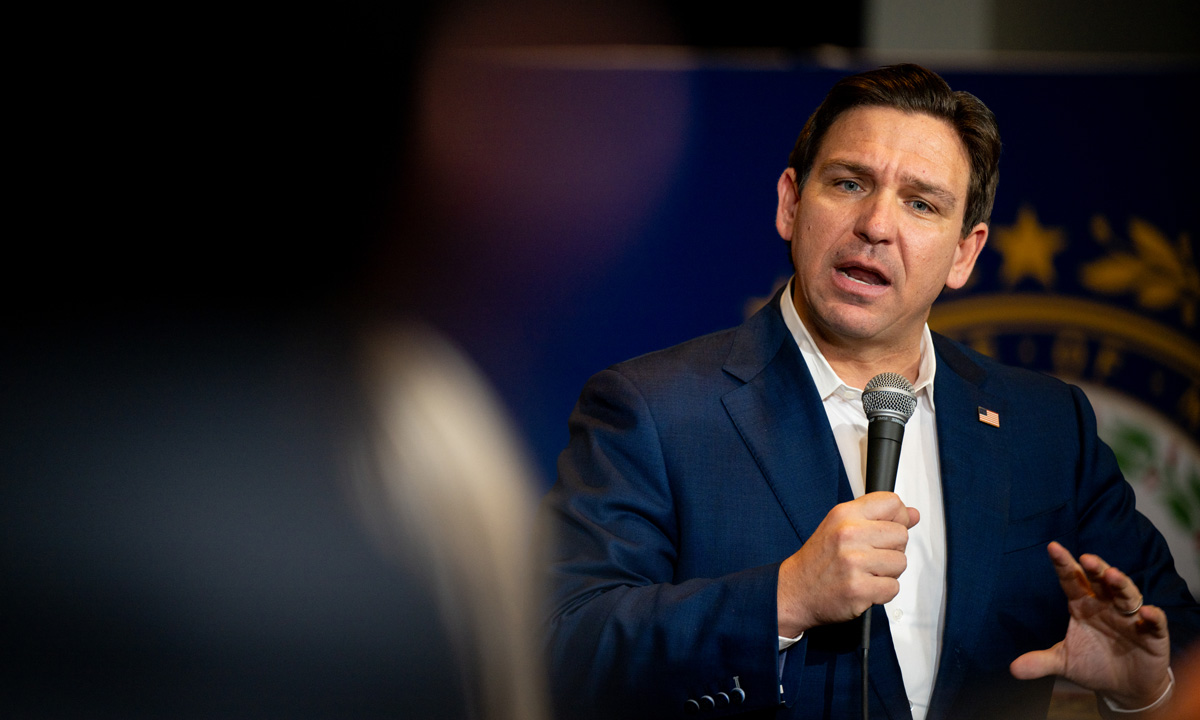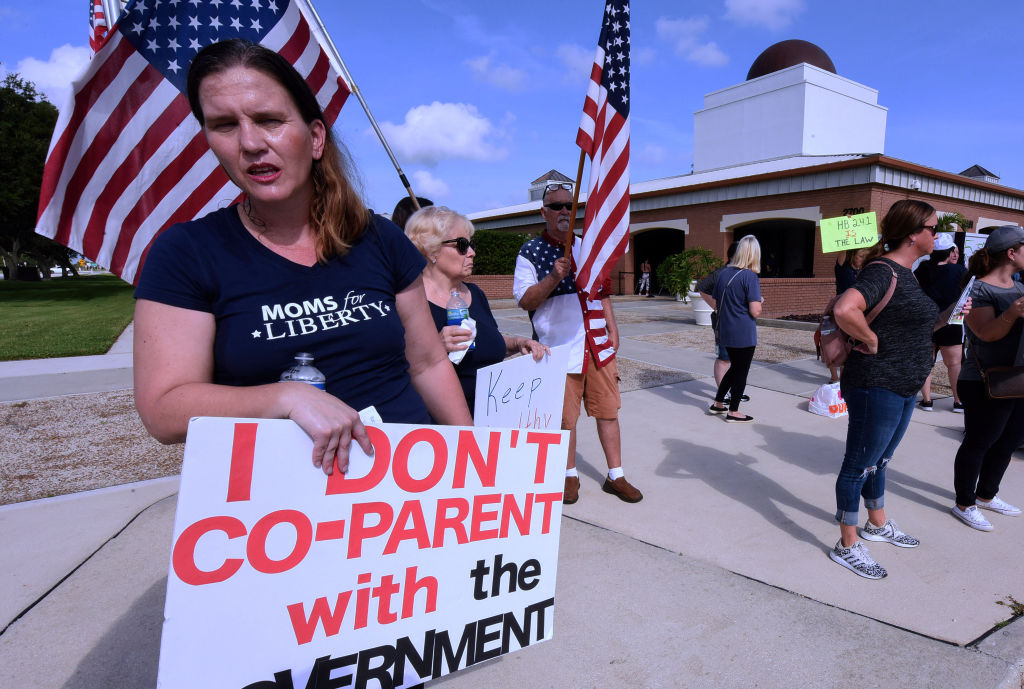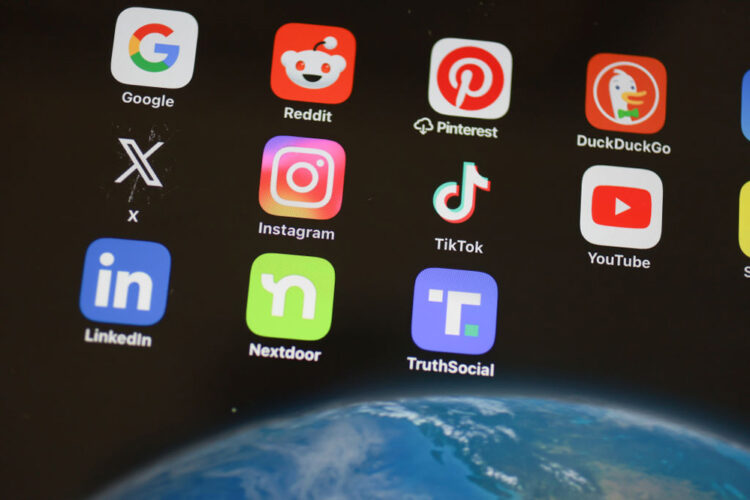A Clash Over Parental Values in Florida as DeSantis Weighs Social Media Ban
One political analyst said the governor is “kind of trapped” by the highly restrictive legislation, which he must address by Friday.

Get stories like this delivered straight to your inbox. Sign up for The 74 Newsletter
Updated March 1
Gov. Ron DeSantis vetoed HB 1, which would have banned Florida youths under age 16 from creating social media accounts. While the governor has said he wishes to regulate virtual platforms like Instagram and TikTok more carefully, he voiced concerns that the legislation would encroach on parents’ rights to oversee their children’s internet use.
Rather than attempt to override the veto, Republicans in the Florida state Senate announced they would debate a similar bill on Monday in the hopes of bringing a compromise measure to DeSantis’s desk before the legislative session ends on March 8.
In a Tweet Friday afternoon, DeSantis announced he had vetoed HB 1 because the legislature was “about to produce a different, superior bill.”
“Protecting children from harms associated with social media is important, as is supporting parents’ rights,” he wrote.
A bill sitting on Gov. Ron DeSantis’s desk could block access to social media for minors in Florida — and significantly influence how other states set policy related to children and technology.
HB 1, which would both prevent kids under 16 from creating accounts on social media sites and require those companies to cancel the accounts of users under the minimum age, was passed last Thursday by large majorities in both chambers of the Republican-controlled Florida legislature. Its fate now lies in the hands of DeSantis, who has questioned whether the law would curtail parents’ own authority over their children’s media consumption.
Whether the bill ultimately takes effect will be a test of competing parental interests in a state that, under DeSantis, has placed heavy emphasis on the rights of parents over their children’s education and upbringing.
The decision about whether to sign or veto HB 1, which the governor has until Friday to make, is playing out as federal judges consider state efforts to more closely regulate social media entities like Instagram and TikTok. Earlier this month, a federal judge blocked an Ohio law that would have compelled such companies to obtain parental permission before allowing children aged 15 and under to create accounts.
HB 1 would constrain social media access much further, flatly banning minors from using the sites. That unambiguous, and possibly unenforceable, prohibition earned the legislation enemies even among conservatives who have been energetic critics of technology companies in the past. The co-founder of Moms For Liberty, a fast-growing parental rights group that has been politically close to DeSantis and other Republicans over the last few years, recently said the proposal goes too far.
But others point to the alleged dangers that social media use poses to young people, with Republican state House Speaker Paul Renner calling the virtual platforms “addictive.” Last year, Surgeon General Vivek Murthy warned that excessive use could expose kids to troubling content, raise the risk of harassment and bullying and damage youth mental health. Since that guidance was issued, 42 state attorneys general have sued the web giant Meta, alleging that its Facebook and Instagram apps target children and teenagers with harmful features. In Florida, a raft of law enforcement groups have given HB 1 their backing.
Susan McManus, a political analyst who taught political science for decades at the University of South Florida, said that DeSantis was being “pushed by two groups of parents, both with equally compelling arguments.”
“DeSantis is kind of trapped,” McManus said. “On the one hand, he’s very strong, and he continues to be a strong advocate of parents’ rights. On the other hand, he’s also got to deal with a parent’s rights to control decision making when it regards their minor children.”
Before the bill was passed, the governor signaled strong concerns about its workability, suggesting that “legitimate issues” still needed to be resolved before he would approve it. The fact that the legislature — by overwhelming margins of 108-7 in the House and 23-14 in the Senate — still opted to proceed with the legislation suggests a measure of tension between Republican leaders and DeSantis, whose unsuccessful run for the Republican presidential nomination may have damaged his standing in Florida. After winning a huge reelection victory in the 2022 midterm elections, DeSantis’s approval has sunk within his home state over the last few months.

Matthew Isbell, a Democratic political consultant, said that HB 1 stood a reasonable chance of being vetoed by DeSantis, who has until March 1 to either sign the bill, veto it, or allow it to take effect without his signature.
“The bill is definitely at risk of being vetoed, and discussion already exists about whether an override will [follow],” Isbell wrote in an email. “If it does, it would be one of the rare times a veto was overridden, especially in the last few decades.”
Civil rights groups have openly called for the governor to quash the law, arguing that its enforcement would require unconstitutional steps to curtail citizens’ rights to express themselves and consume media. In oral arguments at the Supreme Court earlier this week, justices strongly hinted that laws regulating social media content moderation in Florida and Texas would be struck down.
The prospect of the legislation being ruled unconstitutional may lie behind DeSantis’s reluctance to give it his assent. A long list of previous laws passed with strong conservative support during his tenure have been rejected in the courts in recent months, including restrictions on abortion and gender-affirming medical care.

Michael Binder, a political science professor at the University of North Florida, said in an email that the governor’s decision was “almost less important” than the potential legal threats facing HB 1.
“The fact of the matter is that all of this will fade no matter what happens, and the courts will decide the fate of the law if it eventually passes,” he wrote.
McManus said the probability of veto override seemed remote, adding that DeSantis still has almost three years in office ahead of him and considerable influence over Republicans in the legislature. Still, she added, restricting access to technology remained a thorny question for local politicians.
“It’s a tough topic because everyone agrees that there are psychological and learning damages that social media has done to young children. But the question is, how does that relate to parents’ rights to control their children?”
Get stories like these delivered straight to your inbox. Sign up for The 74 Newsletter

;)
